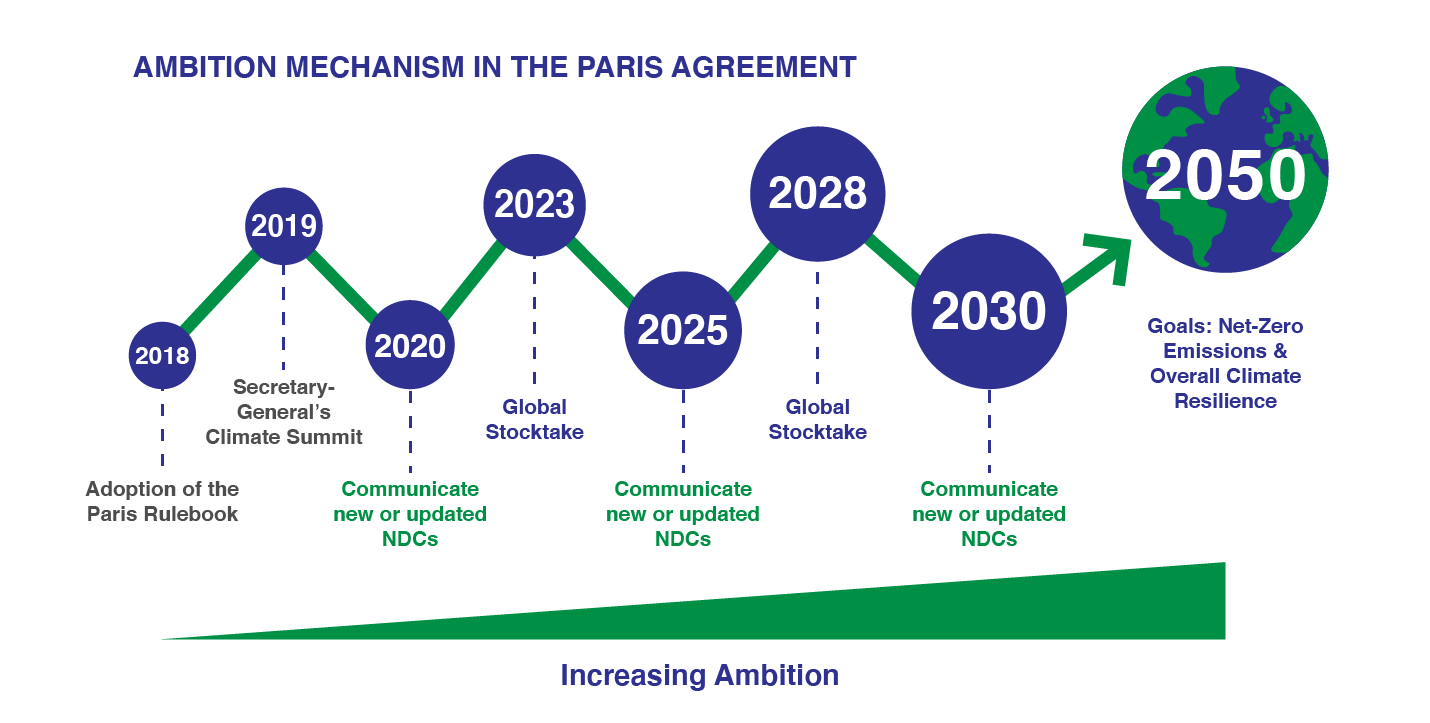We Can Make It Happen

The United Nations Framework Convention on Climate Change (UNFCCC) is an international treaty aimed at addressing the issue of global climate change. It was adopted at the Earth Summit in Rio de Janeiro in 1992 and entered into force in 1994. The primary objective of the UNFCCC is to stabilize greenhouse gas concentrations in the atmosphere at a level that prevents dangerous human-induced interference with the climate system. Key activities of the UNFCCC include:
- Annual Conferences (COPs): The Conference of the Parties (COP) is the highest decision-making body of the UNFCCC. It convenes annually to assess progress, negotiate agreements, and set goals for addressing climate change.
- Kyoto Protocol: The Kyoto Protocol, an international treaty adopted in 1997, it established legally binding emissions reduction targets for developed countries during the first commitment period (2008-2012).
- Paris Agreement: The Paris Agreement, adopted in 2015 and entered into force in 2016, builds on the UNFCCC and the Kyoto Protocol. It sets out a global framework to limit global warming to well below 2 degrees Celsius above pre-industrial levels, with an aim to limit it to 1.5 degrees Celsius.
- Nationally Determined Contributions (NDCs): Under the Paris Agreement, countries submit NDCs, which are national climate action plans outlining their goals for reducing greenhouse gas emissions and adapting to climate change. These contributions are periodically updated and reported.
- Transparency and Reporting: The UNFCCC establishes guidelines and procedures for countries to transparently report on their emissions, climate actions, and progress toward their NDCs.
- Scientific Assessment: The Intergovernmental Panel on Climate Change (IPCC) plays a crucial role in providing scientific assessments of climate change and its impacts. These assessments inform the decisions and policies of the UNFCCC.

